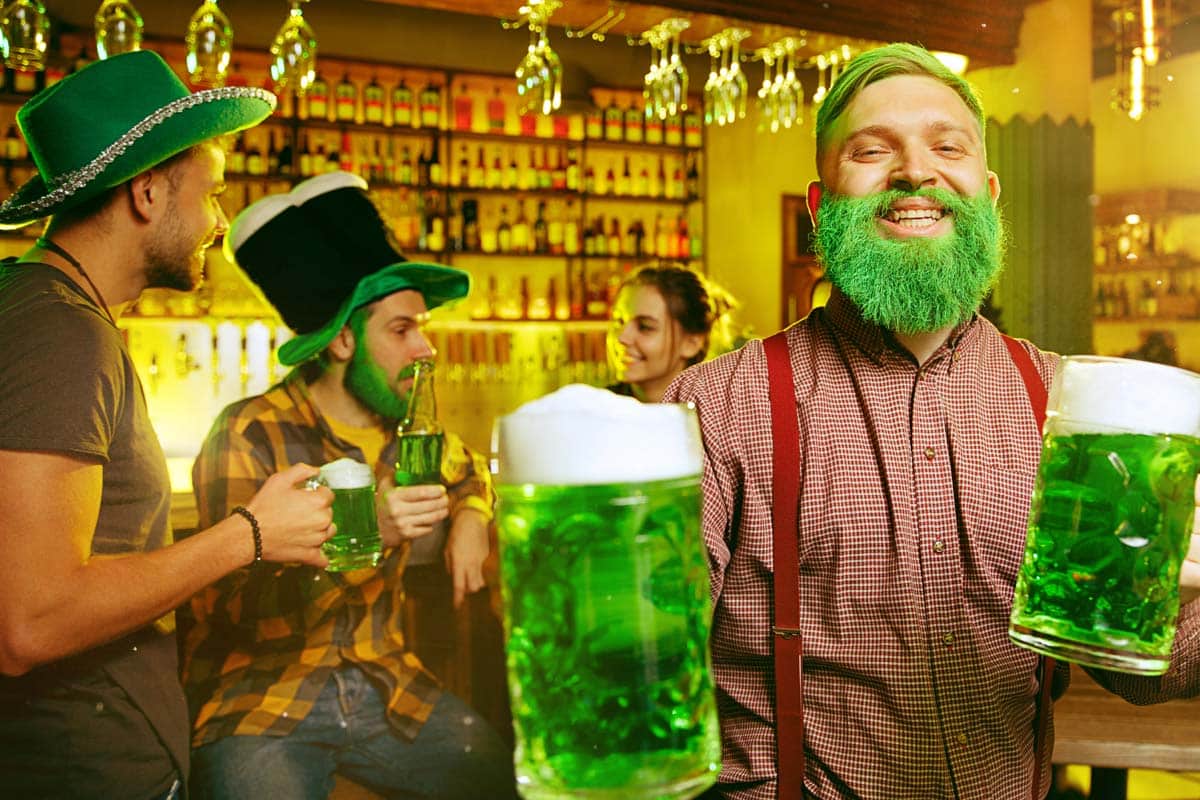How to Dominate Local Search Results in the Bar and Nightclub Sector
In today’s digitally connected world, the significance of strong local SEO for businesses cannot be overstated. Local search engine optimization (SEO) empowers businesses, from cozy neighborhood cafes to bustling nightclubs, with the ability to seize the attention of their immediate community and potential customers. By optimizing their online presence for local searches, businesses gain a competitive edge in reaching individuals who are actively seeking the next hotspot, trend and place to be seen.
In this era of personalized online experiences, a well-executed local SEO strategy serves as a powerful tool for businesses to establish a strong foothold in their neighborhood and flourish amidst competition. Local SEO strategies can greatly help businesses stand out in their local market and compete effectively against rivals. Here are some effective local SEO strategies specifically tailored for bars and nightclubs:
- Claim and verify your bar’s Google My Business profile.
- Provide accurate business information, including name, address, phone number (NAP), and operating hours.
- Select relevant categories, such as “Bar” and “Nightclub,” to help Google understand your business.
- Upload high-quality photos that showcase your bar’s ambiance, drinks, and events.
Optimize Google My Business (GMB) Profile:
- Encourage satisfied customers to leave positive reviews on your GMB profile.
- Respond promptly and professionally to all reviews, both positive and negative.
- High ratings and positive feedback can improve your visibility and reputation.
Positive Reviews and Ratings:
- Optimize your website content with local keywords (e.g., “best cocktail bar in [city]”)
- Create blog posts or articles related to local events, nightlife, and bar scene in your city.
- Use location-specific phrases in your content to enhance local relevance.
Local Keywords and Content:
- Ensure consistent NAP information across all online directories, such as Yelp, TripAdvisor, and Yellow Pages.
- Listings on local directories can improve your local search rankings.
Local Citations and Directories:
- Create individual landing pages on your website for each of your bar’s locations (if applicable).
- Include relevant information, such as address, operating hours, and unique features of each location.
Localized Landing Pages:
- Implement schema markup on your website to provide search engines with structured data about your bar.
- Use schema markup for events, menu items, reviews, and more.
Schema Markup:
- Develop content that highlights local events, news, and happenings related to your bar and the city.
- Engaging local content can attract both search engines and local customers.
Local Content and Blogging:
- Utilize social media platforms to engage with your local audience.
- Share updates about events, specials, promotions, and behind-the-scenes content.
- Use location-specific hashtags and geotags to increase local visibility.
Social Media Engagement:
- Ensure your website is mobile-friendly and loads quickly on mobile devices.
- Many users searching for local businesses do so on their smartphones.
Mobile Optimization:
- Build relationships with local bloggers, influencers, and media outlets.
- Collaborate on content or events to gain local backlinks.
Local Link Building:
- Regularly update your GMB profile with Google Posts about upcoming events, promotions, and news.
Google Posts:
- List your bar on niche platforms related to nightlife, entertainment, and local events.
Online Directories and Niche Platforms:
.
Remember that consistency and authenticity are key. Your local SEO efforts should reflect the unique identity of your bar and the experience you offer to customers. It’s also important to continuously monitor and analyze your local SEO performance to refine your strategies based on what works best for your specific market and audience.

Does a Second Blog Make Sense for SEO efforts?
We were hit up with this question last week by an existing SEO client — and it’s worth going over here. Creating a Blogger account when you already have, let’s say a WordPress blog on your website can be beneficial in some ways, but it might not necessarily help with SEO efforts directly. Here are some considerations:
- Additional Exposure: Having a Blogger account can provide additional exposure for your content. Blogger is a free platform owned by Google, and blogs hosted there can be discovered by a different audience who use Blogger or follow blogs on that platform.
- Backlink Opportunities: You can use your Blogger account to create backlinks to your main website blog. By linking to your website’s blog posts from your Blogger account, you can potentially drive more traffic to your website and improve its visibility.
- Content Variation: You can experiment with different writing styles, perspectives, and content formats on each blog, catering to different reader preferences.
- Diversification: Having a presence on multiple platforms can diversify your online presence. This can be advantageous in case there are changes or issues with your main website.
- Keyword Coverage: With two blogs, you can cover a wider range of keywords related to your subject matter, potentially improving your search engine visibility.
However, it’s important to consider the downsides:
- Duplicate Content: If you publish the same content on both your website blog and your Blogger account, it can be considered duplicate content by search engines. Duplicate content might not be penalized, but it’s generally recommended to avoid it as it can affect your SEO efforts.
- Quality Control: Maintaining the quality of content can become challenging when managing two blogs simultaneously. Dividing your attention between them might lead to a decrease in content quality.
- Audience Confusion: Running two blogs on the same subject can confuse your audience. They might not understand the purpose of having two separate blogs and may end up following only one of them.
- Branding Issues: Maintaining a consistent brand image and voice across two blogs can be challenging. It might dilute your branding efforts or create inconsistencies that confuse your readers.
Running two blogs on the same subject matter doesn’t necessarily guarantee improved SEO. In fact, it can be counterproductive if not managed carefully. The concerns mentioned above, such as duplicate content and link building, can impact your SEO negatively.
Search engines prefer unique and valuable content. If you decide to run two blogs, it’s essential to ensure that the content on each blog is distinct, original, and provides value to your audience. Additionally, managing multiple blogs can divide your efforts, making it harder to consistently produce high-quality content that ranks well in search results.
Instead of managing two separate blogs, consider focusing on one high-quality blog that covers the subject matter thoroughly. This approach can help you concentrate your efforts, build a stronger brand, and establish yourself as an authoritative source in your niche. Remember that SEO success comes from creating valuable content, optimizing for relevant keywords, and building a strong online presence over time.

WooCommerce Roundup
- WooCommerce 8.0 was released on August 8, 2023.
- The Ultimate Beginners Guide to Ecommerce and SEO | No matter what version of WooCommerce you’re jumping into the pool with, this guide is a must-read for beginners — and not a bad refresher read for those of us who might gave gotten a little complacent and picked up a bad habit or two …
“39 percent of online purchases are influenced by a relevant search. In addition, most stores can attribute over 40 percent of their revenue to organic traffic. Plus, many of your competitors won’t take the time to learn and use SEO, so this is a way to get ahead and attract more customers.” - Developer’s Heads Up | While 8.o has just released, starting with version 8.2 (with a scheduled release for October 2023), WooCommerce will require PHP 7.4 or newer to work.
Updates coming. Stay tuned …



